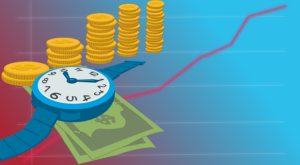
By Devin Partida
Special to Financial Independence Hub
No one expects a monetary crisis to strike until it does. Some events that might throw you into a tizzy include losing your job, a pet getting ill and needing emergency veterinary services or the family vehicle breaking down.
To stick to financial goals, you must have a plan for when the current one falls to pieces. Creating a budget that allows you to survive a sudden catastrophe while saving for a home, travel or retirement is the secret ingredient to keeping the nest egg you need.
Amid the Storm: Identify and Prioritize Essential Expenses
An annual emergency savings report by Bankrate, YouGov and SSRS found that 59% of Americans are not comfortable with their emergency savings. For millions of people struggling paycheck to paycheck, anything outside their normal costs spells trouble.
The first thing to do when you experience fewer funds than bills coming in is to assess where you are and how much money you need to survive.
Identify Needs versus Wants
Although your favorite treat from the grocery store may seem like a need, you can likely find something less expensive to fuel your body. Some examples of needs include:
- Shelter
- Food
- Heating and cooling
Once you have a list of the things you can’t live without, you’ll be better able to assess your priorities. In the short term, calling creditors or subscription services to pause payments or end plans can free up enough money to get through the predicament or assess how much money you need now.
Renegotiate Bills
The next step is to call each company to see what flexibility you have. For example, you need utilities to cook, heat your home and use the lights. Many local utility companies will put you on a payment plan so the bill remains the same around the calendar year rather than increasing exponentially during extreme weather.
For credit cards or subscriptions, explain your financial crisis and ask how to reduce monthly payments. Remember that delaying them may increase the total interest paid on the debt, so only use this technique to survive a short-term spending mess.
Cut to the Bare Bones
If you lose your income or have an unexpected expense, you may need to slash spending even more. Look to local resources for help. Food banks can provide sustenance when you lack grocery funds. Talk to your local county, township or public trustee about help with power bills and other resources in your area.
3 things to do to prepare for Financial Emergencies and Unexpected Expenditures
Life is filled with surprise charges. One way to plan for any crisis is to budget for it now. Weathering the next monetary tsunami will feel more like jogging up a hill than crawling up a steep mountain when you’re prepared. Here are some things you can do to be ready:
Create Multiple Streams of Income
Prepare for extra expenses like medical emergencies or the added costs of parenthood by finding ways to bring in more income. If the raises at work are lower than inflation, you can pick up a side hustle and join the gig economy to cover emergency funding.
In addition to diversifying your income sources, you can receive education to become eligible for higher-paying roles at work. Get an online certification, take a course through the local community college or enter management training through the workplace.
Add apps that earn you money for doing things like walking, taking surveys or buying things online. Look for creative ways to bring in extra cash, such as selling art you create or selling used items.
Build an Emergency Fund
It’s also wise to have some backup revenue during tough economic times in case you lose a main source of income or see unexpected increases in the cost of rent, food and fuel. You can weather smaller expenses by pulling money from your rainy day account.
Pay off High-Interest Debt
Many people struggle because their bills exceed their income. As you bring in extra money and cut unnecessary costs, look at debt and how to pay it off to give you more flexibility in your budget. Some personal finance gurus recommend paying off the lowest amount first before moving on to the next, creating a snowball effect. Others say to pay the highest interest rate debt first to save more in the long run. You must know your personality and which would work best for you.
Survive a Personal Financial Rockslide
You may face several crises at once. Staying calm and applying basic budgeting principles is a good starting point for whatever you’re facing. Using these tips to adjust spending habits, cut your bills to the bone and bring in additional revenue can help you survive any situation and get back on the path toward findependence.
 Devin Partida is the Editor-in-Chief of ReHack.com, and a personal finance writer. Though she is interested in all kinds of topics, she has steadily increased her knowledge of the intersection of finance and technology. Devin’s work has been featured on Entrepreneur, Due and Nasdaq.
Devin Partida is the Editor-in-Chief of ReHack.com, and a personal finance writer. Though she is interested in all kinds of topics, she has steadily increased her knowledge of the intersection of finance and technology. Devin’s work has been featured on Entrepreneur, Due and Nasdaq.


Thank you